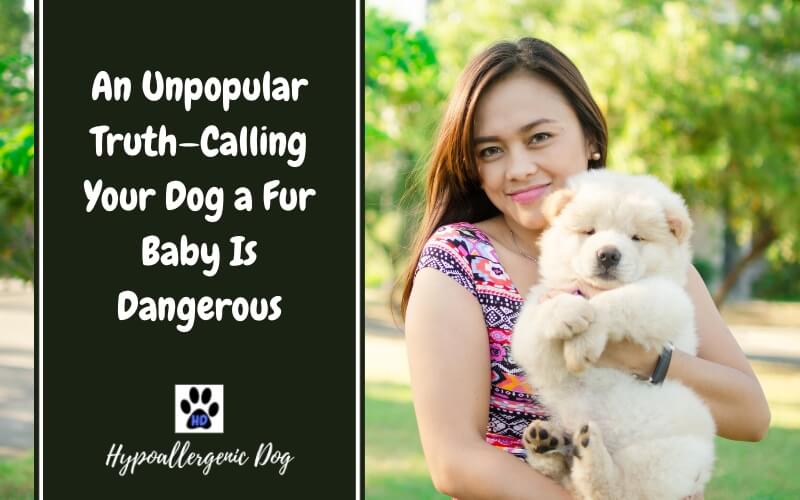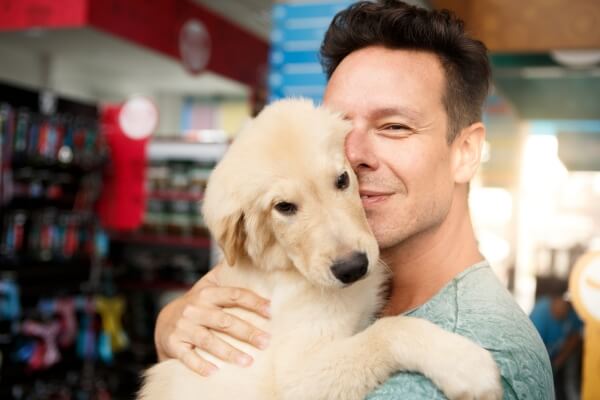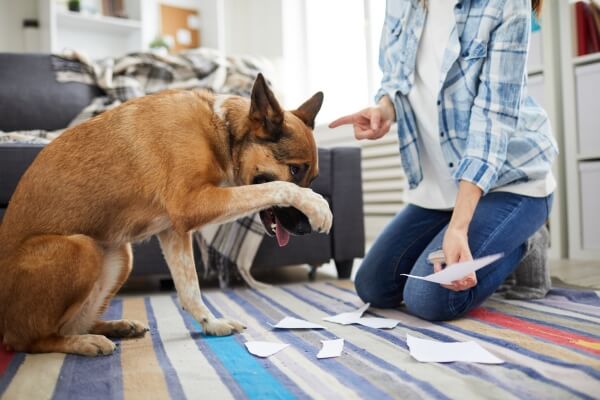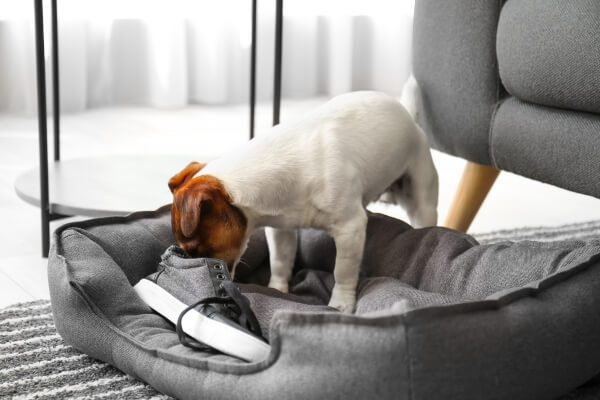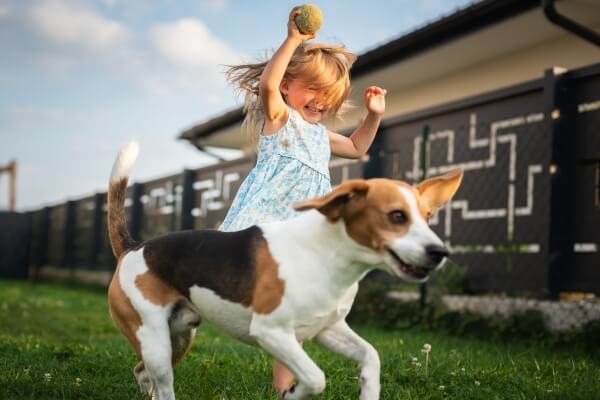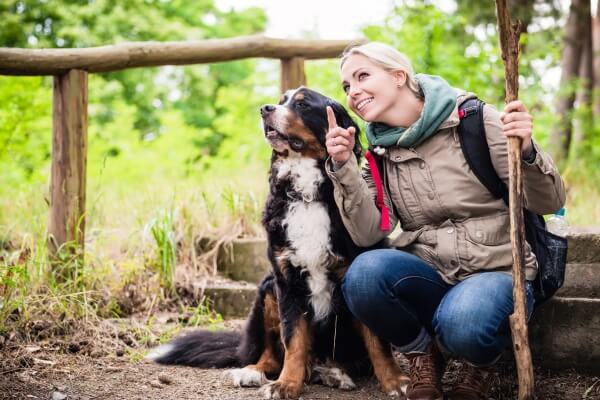Are You Killing Your Dog With Kindness? The Alarming Dangers of Calling Your Dog a Fur Baby
Are you blessed with a fluffy fur baby, a perfect poochkin, or a softie snugglepup?
No, you’re not. Grow up. You have a dog.
Ok, perhaps that’s a little harsh. But seriously, if you’re treating your canine as a kid — even with the best intentions — you’re doing more harm than good. Dogs are many things — companions, hunters, workers, entertainers, and even emotional healers — but they’re not children.
I’ll be blunt.
Calling an animal my fur baby irritates me — as does pawpal, cuddlepaws, tail-wagger, or any other sickly sentimental baby name. In my opinion, the biggest problem we now face is the humanization of animals, especially canines. It’s very unhealthy for the dog, both physically and mentally, and it’s equally damaging to their owners.
Don’t get me wrong. I unreservedly love all my dogs, and I know you have the same huge affection for your pets or working animals. And admittedly, we care and provide for our dogs — as we would for our children.
But, they are not children and need a different type of nurturing. Treating dogs like babies and infantilizing them disrespects your dog and your human family.
Let me tell you a quick story.
A Genuine Fur Baby Daddy Case Study
Recently, I was running a stand at a dog show. A guy came up to me with his wife, mother, and son and asked for advice. He explained he had a one-year-old blue Cattle Dog that was completely out of control. It was doing all the wrong things — the most serious problems being chasing, peeing on, and biting his son.
The guy explained that his father had passed away 18 months before he got the dog — and, as a surrogate for this loss, put all his intense emotions onto the animal. The dog was spoiled, so lost control and misbehaved. He simply couldn’t control the animal.
I then asked the simple question, even though I could guess the response — do you call the dog your furbaby? The guy didn’t answer me. But, his grandmother said — yes, he does!
He was giving more emotional attention to the animal than to his own son — it was insulting to the poor kid. And, due to this abundance of affection, the dog considered himself to be above the child on the authority ladder, and treated him accordingly — by, as well as other things, peeing on him.
Thankfully today, through intensive training — more focused on the owner than the dog to be fair — the problems have subsided. However, it demonstrates an important truth — treating your dog like your offspring can create serious issues.
Giving Your Dog Human Emotions
Your dog has emotions — it experiences anger, joy, fear, distress, and attachment.
However, these feelings aren’t poetic, romantic, or an indication of how close they are mentally to you as a human. Rather, they’re inbuilt safety mechanisms to ensure the animal’s survival and eventual success at passing on its genes.
I’m going to tell you the truth — and yeah, it will probably get me into trouble, but you’ve got to hear it — while your fur baby has basic feelings, it doesn’t experience complex emotions. It’s as likely to express regret as it is ennui, melancholy, or embarrassment.
And, sorry to break this to you, but your dog doesn’t experience guilt.
Guilty Dogs
So often I’ve been told by owners about how they know immediately if their dog has misbehaved — simply by the look on their face. If they go out for the evening, leaving little Rover alone, and he chews a cushion in their absence, the moment they return they know the truth by the dog’s expression.
The dog may be expressing something, but it’s not guilt.
For a dog to experience this emotion, it would have to mentally recall the offending event, understand that its actions caused this event, comprehend that the owner will disapprove, and then go through a process of reflection — where the dog accepts that its actions were wrong, and therefore, deserves blame.
So what is that look of remorse you’re so sure your dog exhibits?
Research shows that it’s most likely fear — whether in immediate response to your scolding as you discover the animal’s naughty behavior, or conditioned through remembering your anger the last time they previously acted similarly.
Or, you could be imagining it. By considering the dog your furbaby — and believing it thinks like a human — you’re seeing its big, brown, round eyes as a reflection of its guilt.
No, it’s just looking at you.
Dogs Delivering Payback
It’s a similar matter with revenge. I’ve had owners tell me their dogs pee on their bed as an act of retribution for leaving them alone all day, or they’ve chewed their owner’s slippers in vengeance for telling them off earlier in the day.
No, they don’t.
There are reasons why the dog acted in this way — the canine may have peed on your bed as it was scared of being left alone, or chewed the slipper out of boredom — but it wasn’t a human feeling of, ha ha ha, I’ll show them!
Ok, you’re probably thinking, so what? Why is this guy so bothered about me giving my fur baby dog human emotions? It comforts me and gives me pleasure thinking of them as a little furry person!
It concerns me because this behavior, in both the short and long term, is damaging to the relationship on both sides.
Treating dogs like humans, and interpreting their conduct as anthropomorphic, causes problems — and then prevents you from seeing the correct action to address these issues.
From the earlier example. If your dog chews a cushion while you’re out of the house, you return and you see its cowering body, lowered ears, and big eyes as a human-like guilt-fuelled apology — you’re likely to let the matter go. Fine, but expect the same issue to arise the next time you go out.
You’re not addressing why the chewing took place. Was it because the dog wasn’t sufficiently stimulated, was the animal bored or frustrated, does it have teeth issues?
Furthermore, you need to look at its ‘guilt.’ Is it fear? Is it a reaction to your scolding as you return? If so, do you think that the dog knows you’re punishing it for something it did a few hours ago, and has probably already forgotten about?
Treating a dog like a dog gives it respect — and builds a stronger bond between you and the animal than treating it like a child. By considering its actions, causes, and your responses from a canine perspective, you’re giving more thought and love to your dog than calling it a furbaby.
How To Treat Your Dog (Not a Fur Baby) Like a Dog
Diet
Letting your dog eat off your dinner plate, finish off your takeaway burger, or lick your ice-cream cone may seem cute if you see yourself as a fur baby momma — but it’s wrong and you could be killing it with human kindness.
These actions can lead to:
- Obesity — and associated health problems.
- Confusing boundaries — what is the owner’s and what is the dog’s food.
- Encouraging bad behavior — it might be ‘fine’ to lick your ice cream, but what about that person’s sitting next to you on the park bench?
- Poison — many human foods, such as chocolate, onions, and avocados, are going to make your dog sick.
Your dog needs a dog diet — it’s a carnivore, not a lollipop-loving kid. What’s more, dogs eat raw food — you think in the wild, Mother Nature has a little campfire every night for every animal? Of course not. So don’t spend hours over the stove on your dog’s dinner — you’re cooking all of the goodness out of it.
Grooming
Your dog needs to be groomed — but not for your social media accounts or to show off to your brunch buddies like a furry human child.
Their coat needs attention to keep them smelling acceptable, ensure good health, allow them to be suitably covered for the current season, and permit them to fulfill their work or training functions.
That said, elaborate cuts can be acceptable — if you have good, canine-based, reasons.
You go to a dog show, and you see the Poodles all done up with all apparent stupidness, and admittedly, they seem to be all groomed funny. But, that’s actually for a purpose — it’s not for human vanity.
Poodles are water dogs — leaving a thick coat over their lungs keeps them warm and protected when they get into cold water, trimming on the loin and rump prevents them from becoming too heavy and saturated when wet. It’s not so they look cute being paraded around the park.
And, by the way, humans wear clothes — dogs don’t.
Some owners humanize their pets by putting man-made bodywarmers, booties, or jackets on them — trust me, the dog is already probably warmer than you will ever be. Don’t do that! The dog’s natural coat will insulate them from heat and cold.
All a jacket will do is damage the dog’s natural fur coat, prevent its skin from breathing, possibly cause allergy issues, and make it look undignified. Give your dog some respect.
Behavior
Treating your dog like a kid and giving it human privileges can stress your connection to the dog — as well as affect your family relationships.
Allowing your dog to sit at your side on the sofa, continually holding it on your lap, or permitting it to sleep on your bed — these are all actions that aren’t acceptable and upset the important hierarchy.
By letting them do things that are forbidden for your actual children, you’re placing the dog higher in the pecking order — at least, that’s how your dog will see it. This can lead to behavioral issues, where the dog exercises its new-found status over your kids and other humans — which may include aggressive behavior.
And, how do you think your kids feel if the four-legged animal receives more privileges than they do?
My advice is this — if you have children, they should be the ones that instruct the dog, not you, because they are already at the bottom of the family ladder. This eventually establishes the animal as being the lowest in the hierarchy.
And, if you feel your child is acting incorrectly towards your dog, you explain that to your kid out of the view and earshot of your pet. Otherwise, your dog will think — hang on, that child’s being chastised, they’re not really in authority over me.
Ok, they won’t think that, because dogs don’t have human reasoning or the ability to deliberate in English! But, they will witness that the child is scolded in the same way as they sometimes are — giving them a sense of at least equality with the child.
Love Your Dog As a Dog
Calling your dog a fur baby and treating it like a child can lead to stress and behavioral issues, and place unrealistic expectations on your animal.
So, don’t do it!
This doesn’t mean that your dog cannot be a loving part of your family — of course it can — but it’s a family member that is, and always will be, a separate species to you.
Just face the truth — it’s happy to eat raw meat, poop in the street, sniff the rears of other dogs, and hump in public. Children don’t typically do that.
Instead — celebrate, love, and admire your dog for its amazing canine nature. Focus your training, playing, scolding, feeding, and grooming around its innate desires, needs, and preferences.
Trust me, behave towards your dog as a dog, and you will have a much stronger bond with your canine than treating it as a fur baby.

